Podcast: Download (Duration: 40:44 — 33.4MB)
Subscribe: Spotify | TuneIn | RSS | More
Welcome to episode 600! I’m doing a solo show today, answering some questions from my recent podcast survey that cover the different aspects of the author life.
- From episode 1 in March 2009 to episode 600 (Jan 2022)
- How do you balance the artist/writer/creative side with the pragmatic business and marketing side of being an author?
- How do you improve your writing craft, both as a beginner and also as a later stage writer?
- What services and tools do you use right now for writing and publishing?
- What are you doing for marketing fiction and non-fiction now and how has that changed over time?
- It feels like an impossible job to stand out in such a crowded marketplace with millions of other books, as well as TV and film, games, music and other entertainment options. How do you deal with the mindset of feeling like it’s all pointless sometimes?
- What are the different streams of income that you have right now from your author business — and how would you like that to change over the next few years?
- Questions for you as we head toward episode 700
From episode 1 to episode 600
I recorded episode 1 in March 2009 when I lived in Ipswich, just outside Brisbane, Australia. I phoned up a bestselling author on a landline, put it on speakerphone, and held an MP3 recorder next to the phone.
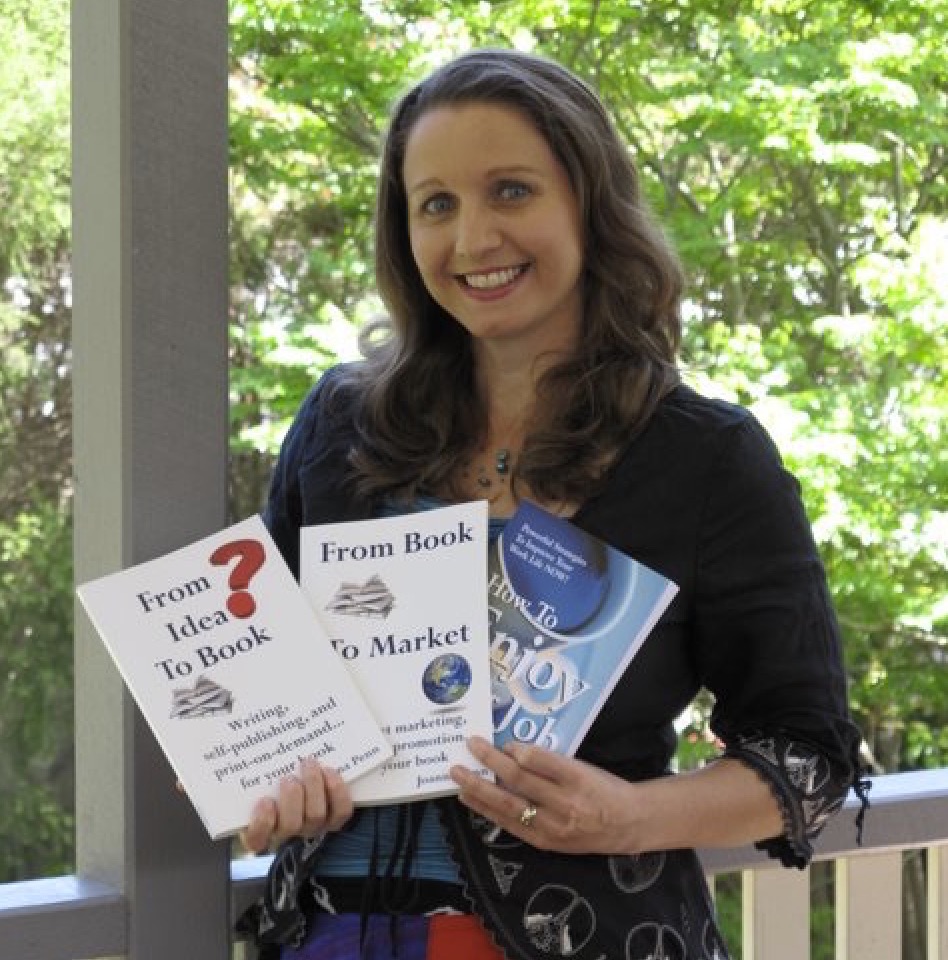
At the time, I worked as an IT consultant specializing in accounts payable within an SAP implementation for an international mining company. I had a couple of non-fiction books out and a few people on my email list. The international Kindle hadn’t yet launched, print-on-demand was only just emerging as a viable option, there were no digital audiobooks — and there was certainly no empowered indie author movement as we have it today.
Back then, self-publishing was mainly done by professional speakers and business-people who had their own distribution channels. Otherwise, it was considered ‘vanity press,’ and certainly not a viable business option for an author.
2009 really was before the dawn of the Creator Economy — which just shows you how things change over time!
In 2009, I had no author friends, and I didn’t really know what I was doing, but I saw podcasting as a way to connect with writers and somehow market my books. I had a one-page business plan on my wall for The Creative Penn with all the different ways I could make money based around my writing. I absolutely intended to leave my job and run a profitable business as an author, but I had no idea what lay ahead. I was just enthusiastic to get started!
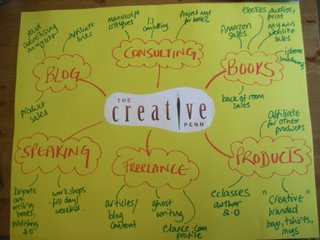
I started making some money and left my job a few years later in 2011 to focus on the business. I started making six figures in 2015, and then quickly surpassed my old salary with a multi-six-figure annual income, which I’ve sustained since then. You can read and listen to more of my historical lessons learned at TheCreativePenn.com/timeline
Almost 13 years after that original episode, The Creative Penn Podcast has now been downloaded over 6.4 million times across 227 countries, with the top countries being US, UK, Australia, Canada, and Germany.
Most episodes get between 9000 – 16,000 downloads per episode, varying by the popularity of the topic, rather than the author, which I think is really key. You don’t have to be a “big name” author to be a great guest on a podcast. You just have to offer valuable content to the audience of the show.
The podcast has many functions in my creative business. I still love talking to people and having conversations about interesting things, which you have seen develop in my future of creativity series of interviews over the last few years. It also connects me with the authors in the community, and many of my friends in real life are people I met on Twitter, invited on my podcast, and then eventually met in person.
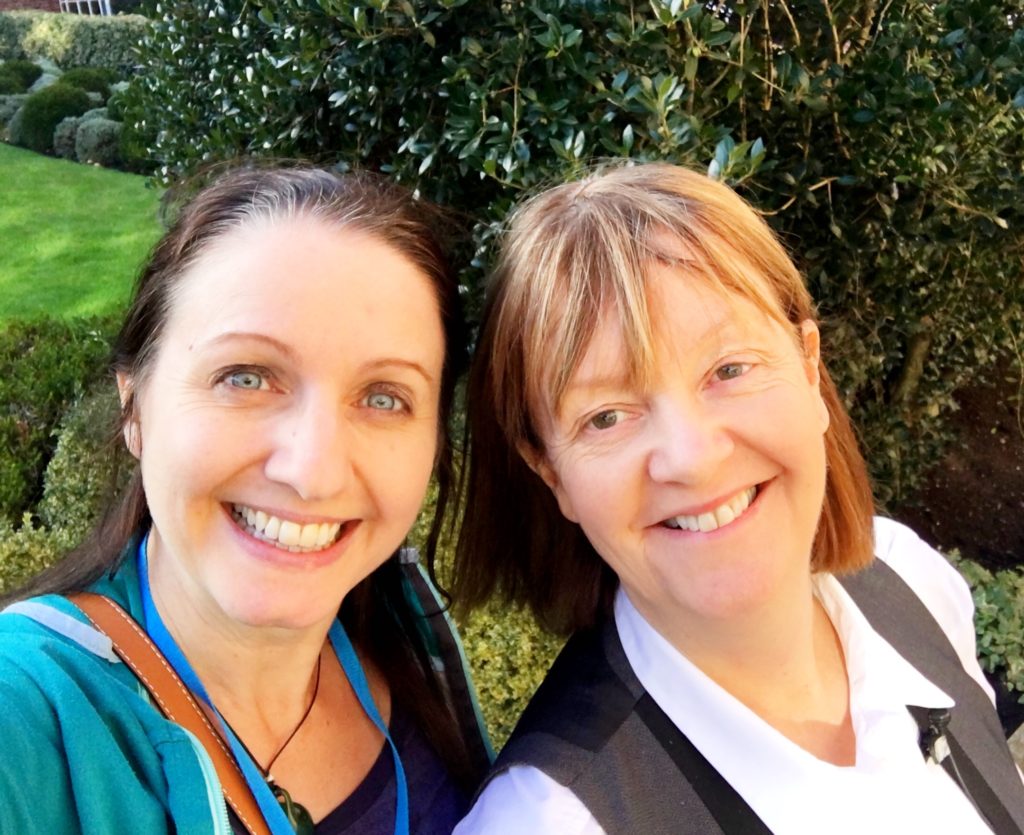
The podcast is also important for my business income. I have consistent corporate sponsors of the podcast including Kobo Writing Life, Draft2Digital, Ingram Spark, FindawayVoices, and ProWritingAid; as well as occasional sponsors like PublisherRocket and ScribeCount — all of which I use personally as part of my author business.
I also have 727 wonderful Patrons on Patreon who support the show every month financially and emotionally, and many others have bought me a coffee. [www.buymeacoffee.com/thecreativepenn].
I also talk about my ongoing writing process and promote my own books, both fiction and non-fiction, and I direct you to useful things with my affiliate links, which many of you visit. Thank you for using my links! And of course, if you want to know more about how a podcast works from the technical, craft, and business angles, check out my book, Audio for Authors: Audiobooks, Podcasting, and Voice Technologies.
This podcast is still one of the most important aspects of my creative and business life. I consider it part of my body of work.
I enjoy being a curator of news and although I was feeling burned out for a bit, as I outlined in my 2021 round-up, I now feel rejuvenated in my mission of empowering authors with the knowledge they need to thrive, especially as we move toward web 3 and what it might mean for creators over the next few years.
Let’s get into the questions, which I’ve put together from a selection to represent every stage of the writer life.
How do you balance the artist/writer/creative side with the pragmatic business and marketing side of being an author?
This is a challenge for every author, and it’s a constant balancing act. No matter whether you’re indie, or traditionally published, there are parts of the author ‘job’ that involve business and marketing tasks. You cannot do without them if you want to sell books and be a successful creative professional.
I love business and I think it’s incredibly creative. We turn our ideas into books that exist in the world — amazing! And making money with my art means I can make more art!
If you don’t feel that way about business (yet), then you need to change your attitude. If you embrace the business and marketing side, you will be more successful, whatever that means to you. [Check out my books, How to Make a Living with Your Writing, Business for Authors, and Productivity for Authors for more detail on mindset and practicalities.]
In terms of balance, I essentially split my day.
Weekday mornings, or anything up to about 2 pm are usually for creative work — which includes first draft writing, editing, research and noodling ideas, recording and editing audiobooks, and also things like this solo show, which is essentially a piece of writing — as I write before I record for these solo shows, and I also write the introduction for every interview show. Podcasting for me originates in the written word!
Weekday afternoons are for business and marketing tasks — which include podcast interviews, either for my show or appearing on others; business meetings; email scheduling and replies; scheduling and managing ads; accounting and tax things; organizing research trips; social media (which is a tiny, tiny part of my life now, barely even 15-20 mins a day).
I usually work at the weekends, too — but mostly, just an hour or so each day to stay on top of email and business things, as they are relentless! I will also go on longer research trips for my fiction, and also on business conferences to either speak or learn, and then the usual schedule goes out the window!
I used to have a similar split when I had a day job between 2006 – 2011. I’d get up at 5 am and write, then go to work, and in the evenings, I worked on the podcast/blog/social media/learning the craft and the business, and everything else.
Inevitably, it’s a bit like a see-saw (which I think some Americans call it a teeter-totter which I always find hilarious!). If you stand in the middle and try to stay balanced, inevitably things shift one way and then you have to change your focus to either side.
Sometimes I drop everything and just finish writing or editing a book. Other times, I have multiple days of marketing and business in a row. It depends on the stage of each project.
The good news is that over time, you learn more about your personality (see episode 572 on Strengths for Writers) and what works best for you, plus new tools for writers are developed all the time that help save time and effort.
Plus, as you make more money, you can invest in freelancers to help you. Thank you to Alexandra Amor, my virtual assistant now for many years! We’re both introverts, so even though we email sometimes multiple times in a work day, we’ve only spoken on Skype a few times and never met in person. Maybe one day! Thanks also to Jane Dixon Smith, my cover designer, who knows me so well now, she pretty much nails every cover first time. I have other freelancers for other things, but those two have been with me for years.
In terms of practicalities, I use Google Calendar to schedule everything — including my writing time. I block out meetings with myself to write, and turn up as I would to any other professional meeting. The reality is that there is never enough time to do everything, you just have to make time for what’s important for you.
How do you improve your writing craft, both as a beginner and also as a later stage writer?
This is a great question and it gets to the heart of why being an author can be a long-term career. With every book we write, we learn something new, so if you keep stretching yourself, you can keep learning new skills, which keeps the process fresh and interesting.
Of course, you can only do that if you write more books. So that’s the first tip! Don’t spend years working on the same book, re-editing over and over again and making endless changes. Sure, you should finish the book and work with a professional editor to make it the best it can be. But then write another one, and another, and another, and you will learn something different every time.

The best-loved writers — and the ones making the most money — are often the ones who have a huge backlist and many decades of writing behind them. In the indie world, they are definitely the ones with more books. Sure, there are outliers, but generally, if you want to improve your writing craft, then write more, work with professional editors to improve your work, publish, and move onto the next book.
You also need to read a lot and invest in your education.
Over the years, I’ve been to a LOT of literary festivals, I’ve paid for courses on writing craft, both in person and online; and I still go on craft courses (although mainly online these days.) I’ve read hundreds of writing craft books, and many thousands of books that I read for pleasure — and of course, I learn from them too.
I read for at least an hour every day, and listen to audiobooks as well, and I have a reading slot in my weekend for more books. I read 3—5 books a week in different formats and I spend a large proportion of my disposable income on books! I love books!!!!!!!!
If you want to win a literary prize, I recommend volunteering as a preliminary judge if you’re part of genre fiction organizations, as you can learn a lot from speed-reading and seeing what kind of books make long lists and short lists of awards. Buy and read the winners and short-listed books and try to figure out what set them apart.
You might want to use different editors over time, especially if you change genres. As your writing matures, you will find you can move to a different level with some targeted feedback on your work.
For fiction, check out Stages of a Fiction Writer by Dean Wesley Smith. It can be brutal, but it seriously helps you target what you need to focus on!
What services and tools do you use right now for writing and publishing?
I have a list of everything, including links to editors and book cover designers at www.TheCreativePenn.com/tools, but here’s an overview.
I write in Scrivener. I love it and have used it since book 2.
Once I have a finished draft, I print it and hand edit, then put those changes back into Scrivener.
I open the Scrivener project in ProWritingAid and go through edits according to their suggestions (of which I make about 90% of the recommendations).
I print and hand edit once again, but this is usually the only other full edit I do.
I export the file to MS Word and import into Vellum, where I format the book. This is particularly important for non-fiction as the formatting is so important for how the book flows. [Vellum is Mac-only. Check out other book formatting options here.]
I send the MS Word manuscript to my editor and/or proofreader, depending on what book it is. I have different freelancers for different projects.
I make the changes directly into Vellum.
I export to Word and run it through ProWritingAid one last time, make the final changes to Vellum and then export for publication.
I decide on categories and keywords with PublisherRocket and format the HTML with Kindlepreneur’s free formatting tool.
I currently publish ebooks direct to Amazon KDP, Kobo Writing Life, and Apple Books, and then I use Draft2Digital and PublishDrive for other stores. (I’m grandfathered into PublishDrive’s previous business model).
I use KDP Print and Ingram Spark for paperback, hardback, and large print editions.
I use ACX for Audible and Findaway Voices for all other stories.
I am predominantly wide for my books, with a few in KU.
I also sell direct for ebook and audiobook at payhip.com/thecreativepenn and I have a tutorial on selling direct if you’re interested in doing that, too.
In terms of keeping track of links, I use Books2Read.com which has recently been improved with different kinds of print links, and also Payhip, so I’m just getting all those updated.
Some new indie authors might think this takes a lot of work, but I’ve done it all so many times now, it doesn’t take long. Just a few hours to publish once everything is ready. Publishing is easy — writing and marketing are the challenge!
What are you doing for marketing fiction and non-fiction now and how has that changed over time?
For Joanna Penn and my books for authors, my website gets a lot of traffic based on several thousand articles and podcasts posted since 2008. I have my Author Blueprint which gets dozens of sign-ups daily and that’s been my call-to-action since day 1, although of course, I update the Blueprint every few months. I actually just did it last week.
I have The Creative Penn Podcast, of course, and that’s brought people into the ecosystem for years now, and the call-to-action is the Blueprint again.
I have a series of non-fiction books with specific author-related metadata, and I now pay a freelander (hired through Reedsy) to manage my Amazon Ads for non-fiction. The books are available in all formats and I narrated most of the audiobooks. I occasionally do Facebook Ads, but not often.
For social media, I have Twitter @thecreativepenn which I started in 2009 and I use Buffer to schedule tweets from my content and also other blogs. But social media really is a tiny part of my author life now.
And that’s basically it for non-fiction — and except for ads, it’s the same as I have been doing for over a decade. It’s still content marketing 101. Put useful/interesting/entertaining/inspirational content out for free, attract people to your ecosystem — and especially to your email list — and eventually, they might buy something. It still works and it’s the foundation of my business.

For my thriller, dark fantasy, and crime fiction as J.F. Penn, I mostly publish books in series, and I’ve just used free first in series, or limited deal promotions on first in series over and over for years.
Content marketing for fiction is having books (or short stories/novellas) for free that attract people to your other paid books. [I have a course on Content Marketing for Fiction if you want more details.]
I have my email list at JFPenn.com/free and for social media, I have Instagram @jfpennauthor and Facebook @jfpennauthor but that is mainly for photos, and book launches.
I also have my Books and Travel Podcast and blog, which does attract some readers for my fiction, but mainly I love doing it for inspiration, and at some point, I will publish my travel memoir pilgrimage series. I have two books in draft and potentially another one by the end of 2022, so I need to get going on those.
So, it’s interesting to consider that even though there are new marketing tactics all the time, the principles remain the same.
- Write great books (preferably in some kind of series) that appeal to a certain type of reader — and understand who that is.
- Set up and maintain an email list that you own and control, so regardless of what happens to the publishing companies, you will always be able to sell books
- Find a form of ongoing content marketing that you can sustain for the long term. For me, that’s podcasting for non-fiction (and previously blogging); and also using free first in series for fiction — and attract readers into your ecosystem (and email list)
- If you have the time and budget to get into paid ads, find ones that work for you and use those to boost your sales (but this usually works best with you have a decent number of books, and usually in a series).
Your sustainable marketing might be TikTok videos, or press releases for media appearances, or live events, or Instagram reels, or targeted ads, or whatever else you can sustain for the long term, and the tactics will keep changing. But the focus is always bringing people back into your ecosystem, so you can grow and maintain that relationship over time.
Time in the market matters — for book sales, marketing, brand building, community, all of it. One reason this podcast continues to attract and retain an audience is because I have been at it for so long. I’ve changed the format and content as I have changed, and I share my personal journey along the way — and of course, that changes every week!
It feels like an impossible job to stand out in such a crowded marketplace with millions of other books, as well as TV and film, games, music and other entertainment options. How do you deal with the mindset of feeling like it’s all pointless sometimes?
I know it’s hard, and we all have days like that!
If you’re starting out, it’s very frustrating to hear that you need to build a backlist if you want to be successful. I remember hearing it from Dean Wesley Smith and Kris Rusch, and Bob Mayer back in the day and getting annoyed.
The early indie superstars like J.A. Konrath, Bella Andre, and Barbara Freethy came out of traditional publishing with a ton of books that they got the rights back for. Back in 2008, when I started, I had nothing — and back then, we didn’t have the marketing options we have now.
So yes, there’s more competition now, but there are also so many more oppportunity.
The global market has grown so there are more readers every day, the tools we have now save so much time and effort, the marketing possibilities are online and endless. So really, it’s about changing your attitude.
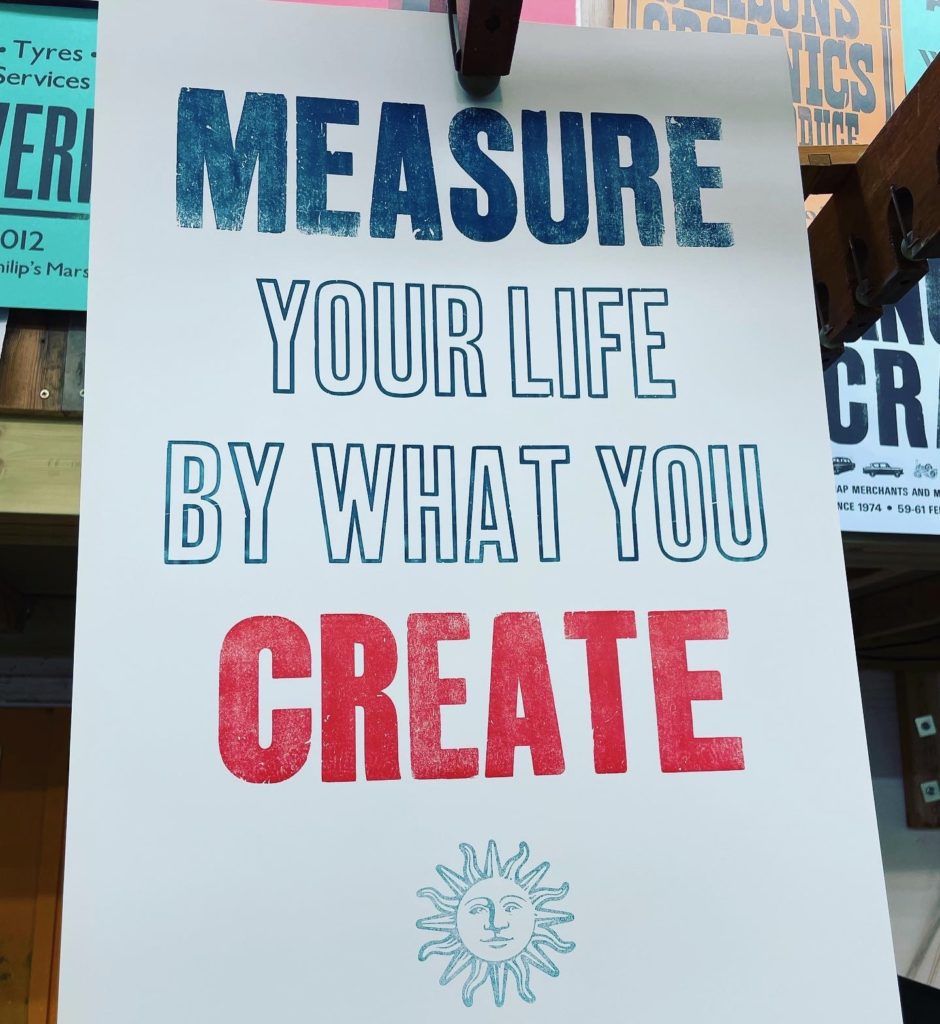
I measure my life by what I create, and I love writing and creating, so I want to do that regardless. Even if I got the huge movie deal and never had to work again, I would still write (and probably podcast!) I also want to reach readers with my fiction, and other authors and readers with my non-fiction, so I just keep putting my creations out in the world in different ways and trust that the right people will find them. And here we are, all these years later, and it works. It still works.
Create for the joy of creating, then put your work into the world — consistently, for years — and find a way to reach readers that you can maintain — consistently, for years — and things will happen. They might not be what you expect, but things will happen!
What are the different streams of income that you have right now — and how would you like that to change over the next few years?
Right now, I have income from book sales in multiple formats on multiple platforms and also licensing revenue from foreign rights — and I’m always open to licensing deals. Just email me 🙂
I also have podcast income from corporate sponsorship and income from Patrons at Patreon and BuyMeACoffee. Plus, I also have affiliate income from the tools and services that I recommend, which are always companies I use myself in some way and essentially stake my reputation on.
I have course sales — check out my courses at www.TheCreativePenn.com/learn. I used to have speaking income, but that is almost down to zero now, as I do some speaking events, but very few.
In terms of changing things, I have a path forward in my head, but it will take a few years to execute.
I want to make everything evergreen, but that will mean dialing back the income from courses and also from this podcast and any non-fiction that needs new editions every few years.
It means writing more fiction and short stories, and evergreen non-fiction, and streamlining my backlist, so that the reader journey is an easy route through series and able to be automated with email autoresponders.
I want to ramp up book sales and increase licensing revenue, and as we move into Web 3, I have a lot of ideas for more things I want to create. Listen to episode 601 for more on this!
I’ve also focused on my investments over the last seven years (which I talked about on the Choose FI podcast in their episode 181, and in episode 469 on FIRE for Authors with Brad Barrett.)
[Note: I’m not a financial advisor. This is not financial advice! Here’s my list of recommended money books.]
The Financial Independence model has an accumulation phase (where you buy assets) and then a distribution phase when you live off the income generated by those assets.
The author business model can have the same kind of approach. You create your intellectual property assets, then by licensing them in different ways, you receive income from those assets, hopefully for the term of copyright (50-70 years after the death of the author, depending on the jurisdiction.)
My plan is to keep creating new intellectual property, license it, and streamline the marketing more effectively, so I can focus more of my time on the creation side — and also spend more time traveling, walking, doing book research trips, having fun with Jonathan and my family, and generally LIVING!
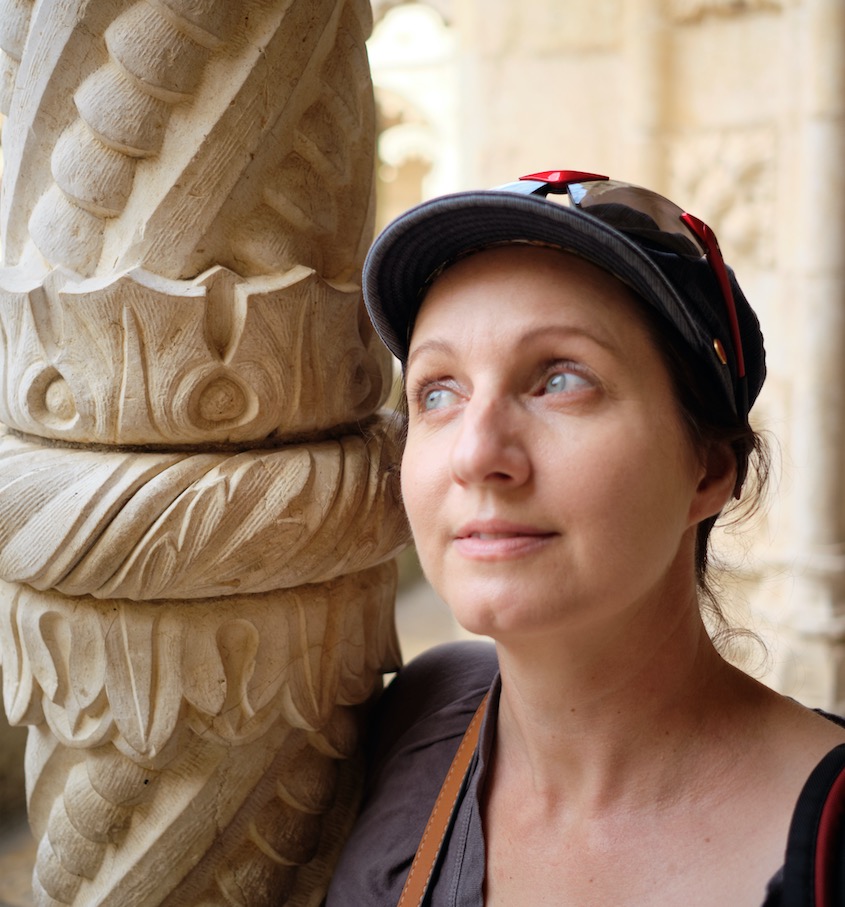
I hope to be much further in that direction by episode 700 — and hopefully, by then, the pandemic will be over and we can all get back into the world again.
So to end episode 600, I want to ask you a few questions, as I did at the end of episode 500.
- What were you doing in March 2009 when I started this show? What did your writing situation look like then?
- What writing goals have you achieved in the almost 13 years since then?
- If you haven’t achieved the goals you wanted, then why not? Were they the wrong goals? Or do you need to refocus?
- What lessons have you learned along the way?
- What do you want to achieve by episode 700, which should be around January 2024?
THANK YOU!
Thank you for listening and sharing the podcast with author friends and on social media. Thanks for buying my books and products and those of my guests. Thanks for supporting me by being a patron, or buying me (virtual) coffee, or using my affiliate links, or heading over to the corporate sponsor websites.
Thanks for leaving reviews on the podcast apps. Thanks for tweeting me @thecreativepenn with your thoughts and pictures of where you listen, and for leaving comments on the show notes or the YouTube channel, or emailing me with how the podcast has helped you. Thank you.
I wouldn’t continue this show unless you, the author community, still found it useful. My recent survey, and my wonderful patrons, have told me that it continues to be useful, even in a far more crowded author podcast space than it was when I started out.
So, I’m committing to episode 700, Creatives!
I don’t know what the coming two years will bring, but I’ll keep sharing the journey, and I hope you’ll come along for the ride!
I’d love to hear your thoughts on this episode. Please leave a comment or tweet me @thecreativepenn or you can email me through the Contact page.
Happy writing and I’ll see you next time.
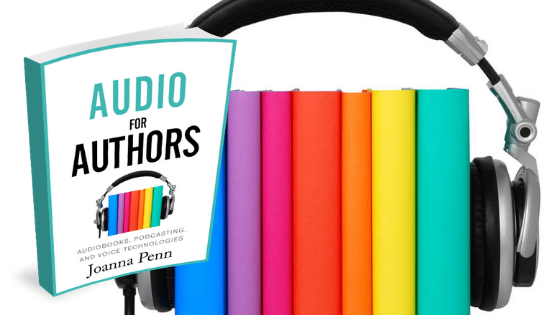
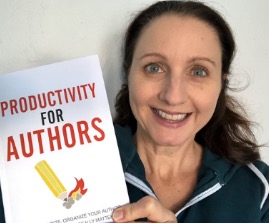
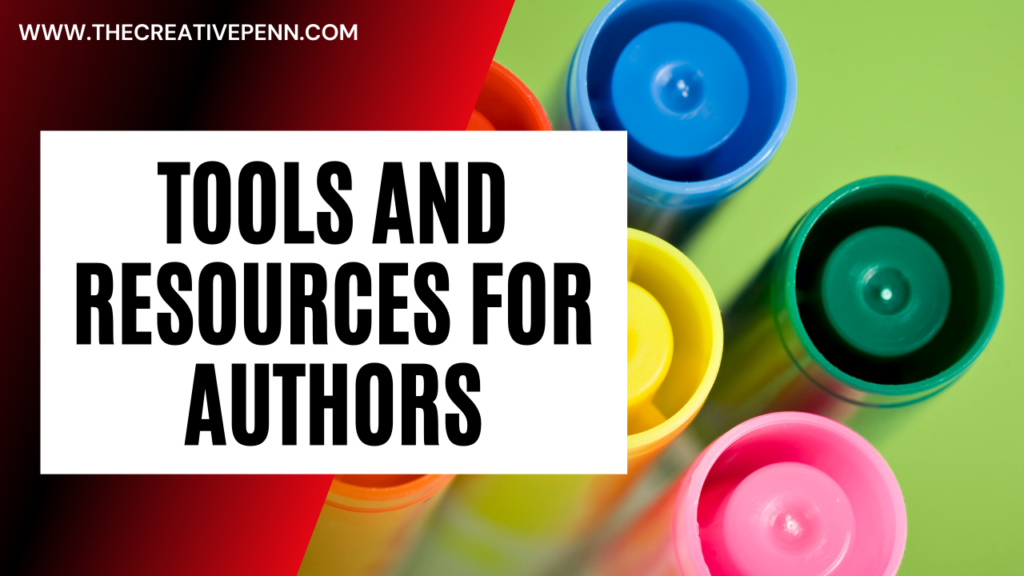
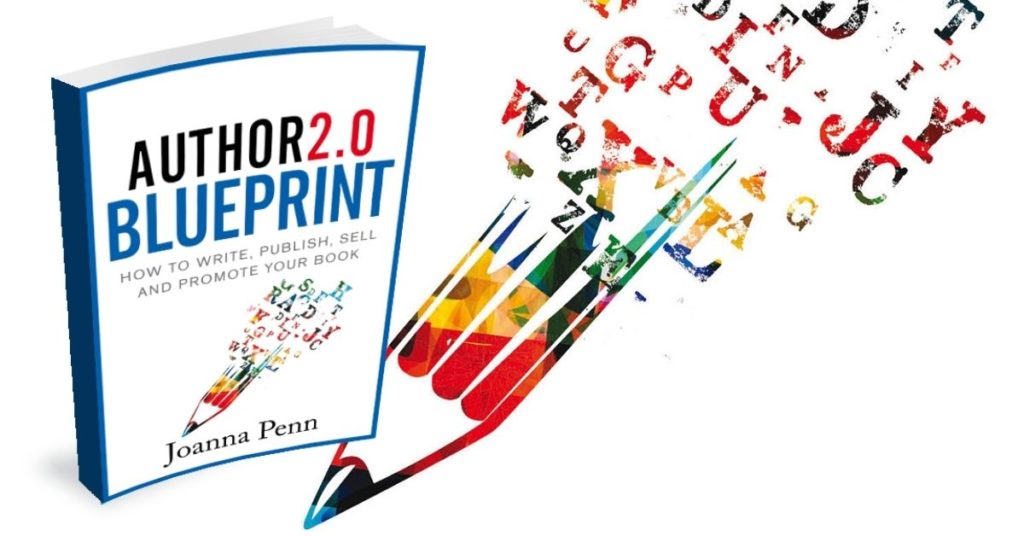
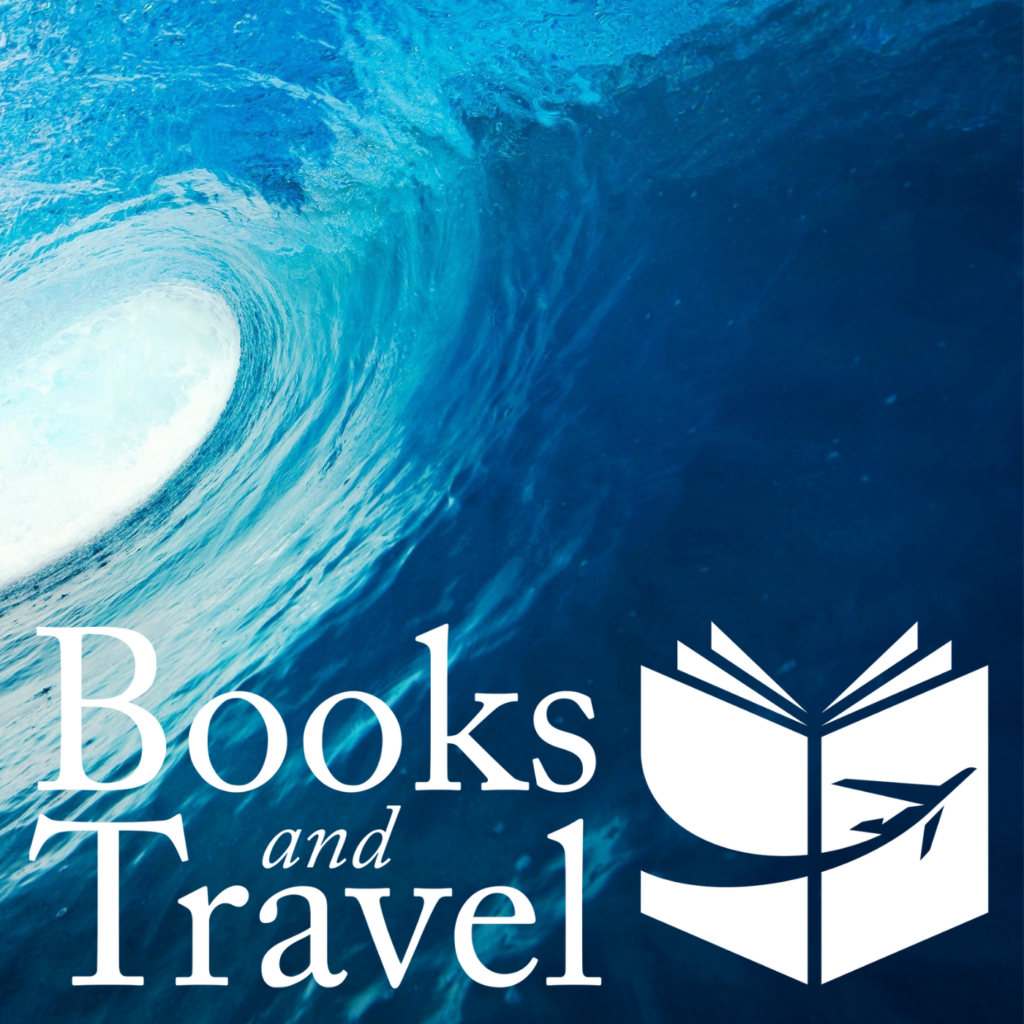

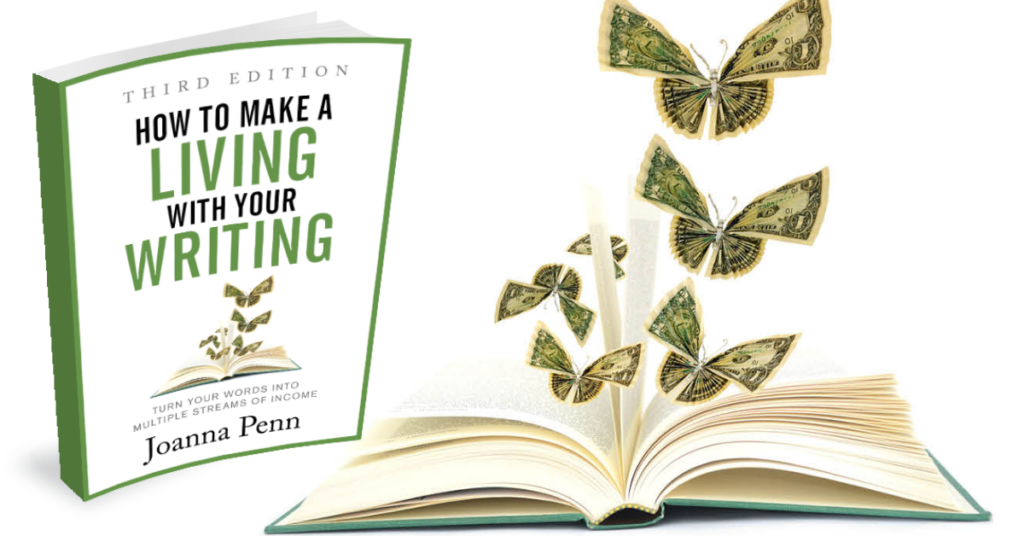


First of all … 600! Congrats!
I know I will have more questions from this one.
For today, this: “I send the MS Word manuscript to my editor and/or proofreader, depending on what book it is. I have different freelancers for different projects.
I make the changes directly into Vellum.
I export to Word and run it through ProWritingAid one last time, make the final changes to Vellum and then export for publication.”
So you don’t go back to make changes in Scrivener? What do you do with the “old” copy there? Maybe nothing?
As I listened to podcasts, yours plus others, about Atticus, that is one thing that freaks me out–having many different copies. I have finally learned to hit back-up instead of save as, so each back-up is dated. Freaks me out!
Thanks Joanna. There are so many podcasts, etc that I think that I need to email you to respond, but I rarely do it! You and your generous website are a wealth of info and I thank you! I never take pictures of where I listen–it’s either in the car or in the shower!! Lol!
Don’t go to my website. It’s broken! Manuscript to editor today. Tax appointment Wednesday. Then fix that dang thing!
Blessed,
Bonnie Lacy
Thanks, Bonnie!
Once I format in Vellum, I don’t go back to Scrivener. I make all subsequent changes in Vellum. I keep all files and daily backups though. Every draft is dated.
I even know some writers who write directly in Vellum now. The formatting helps to make it feel like a ‘real’ book, I suppose.
I use dropbox for my backups now and you can make whole folders that don’t stay on your computer, just in the cloud, but I also email everything to myself 🙂 Multiple redundancies.
All the best for ’22!
Thanks! I’m one of those oddballs who adore all the ‘inbetweenies’. Your thought process parallels my own so I can thoroughly appreciate it.
I write historical mysteries from the POV of an archeologist and have a series going live this year.
Love all the new data on what is going on and what is on the horizon in publishing. I want to be in front of the curve if possible and that takes knowing there is a curve coming up! So I will forever listen and participate.
Thanks, Suzie, and I love that you write historical mysteries and still want to learn about the futurist stuff!
600!? March 2009!? Where has the time gone? And congratulations! 🙂
I honestly can’t remember if I jumped in with your first podcasts or not, but it was near the start (thank goodness for transcripts – I don’t listen often, but I always read). I hadn’t published quite yet then (my first was August of 2010), but I was serializing fiction on my own blog, and trying to figure out the whole self-publishing thing in spite of the writer friends I had still hanging on to trad pub dreams. Your early blog posts and books were some of the most helpful I bought when I was figuring all that out and preparing to publish, and I’ve enjoyed following and learning from you and your guests ever since.
I’ve published quite a few books since, but have never been able to leave the security of the day job, so I’ve been coasting for awhile, writing as I can and learning as much as I can about craft. This year, I’m finally writing to publish again, which is exciting.
Thank you for so many years of sharing your knowledge – I look forward to your next hundred posts/podcasts!
Thanks, Jamie! All the best with your next book.
Joanna, after a year of Penn-podcast listening, transcript reading, and Penn-book buying, I’m moved to totally salute you with respect, gratitude and gobsmackedness at your wonderful self.
The evolution of your career shows such courage. And the generosity of your spirit in sharing your learnings with the rest of the planet gives the finger to all that stinks of cynicism in this beleaguered world.
If ever you doubt that you’re not leaving the world a better place, or that you’ve not done ‘enough’ (whatever the heck that means), well…stop doubting. You are a gem and bring a much-needed light to many souls, most of whom you will never know. Keep breathing, and walking, and thank goodness you’re finally getting some SLEEP! – Gwen from Yoho Lake, NB, Canada
Thanks so much, Gwen. I appreciate your kind words, and yes, sleep makes a lot of difference!
Thanks so much, Gwen. I appreciate your kind words 🙂
First of all, let me say, I find your content very useful and I continue to steer new authors your way for the wealth of information you provide. These types of review podcasts are my favorite. They force me to acknowledge what I’ve done for my own author business.
Here are my answers:
March 2009 was the first time someone whispered in my ear to consider Nicaragua as a permanent home base. I laughed.
I was preparing to visit Berlin, Germany over the summer. Needless to say, the trip changed my life. I promptly went to visit Nicaragua in September on a scouting trip.
By November 2009 I was participating in my first NaNoWriMo and made plans to move to Nicaragua in 2010.
Since then I’ve achieved the goal of publishing 14 books over two pen names, not including 2 ‘reader magnet’ novellas.
Since then, I’ve learned a lot about the genres I love to read and write including the changes in marketing and publishing them.
I’ve learned my Strengths and how to make them work for me to write and publish in alignment with myself. Along with that, I’d like to do some more public speaking.
In two years, I’d like to publish another 10 books because that’s how many story ideas I have waiting to be written. I’d also like to move back to Nicaragua. Canada is cold! – Shelina (AB, Canada)